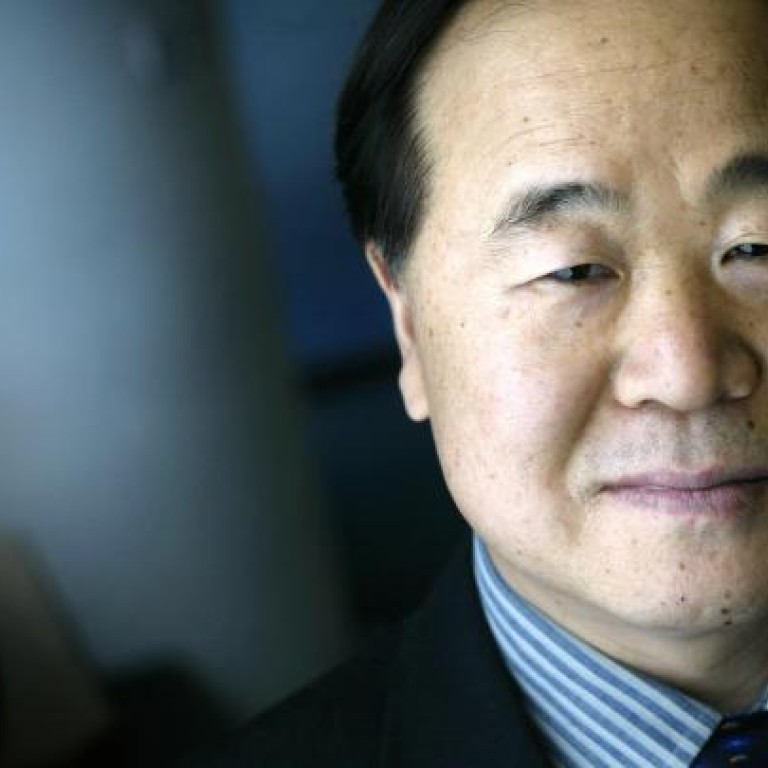
Mo Yan wins Nobel Prize for Literature
Mo Yan wins world's highest honour for literature with writing rooted in Chinese tradition and influenced by Western peers
Author Mo Yan made history yesterday by becoming the first Chinese national to win the Nobel Prize for literature.
Although mainland-born Gao Xingjian won the literature prize 12 years ago, he was by then a French citizen, after moving to France in 1987.
The Swedish Academy, which oversees the 111-year-old prize, hailed Mo Yan for his "hallucinatory realism" which merged "folk tales, history and the contemporary", when it announced the 8 million Swedish krona (HK$9.25 million) award in Stockholm.
"He has such a damn unique way of writing," the academy's permanent secretary, Peter Englund, told Swedish television.
"If you read half a page of Mo Yan you immediately recognise it as him. He was at home with his dad [when told he had won the award]. He said he was overjoyed and terrified."
Certainly he is outstanding enough to be the vanguard of Chinese literature on the world stage
Mo Yan is a pen name which means "don't speak". His real name is Guan Moye .
The award citation said Mo Yan, 57, used a mixture of fantasy and reality, historical and social perspectives to create a world that was reminiscent of the writings of William Faulkner and Gabriel Garcia Marquez.
Mo Yan also found a "departure point in old Chinese literature and in oral tradition", it said.
The announcement capped days of media frenzy on the mainland about Mo Yan's chances of winning the award.
Mo Yan chose to stay out of the public eye for the past few days, but yesterday told the press at a hotel in his home town, Gaomi in rural Shandong province, that he was "very surprised" and was having dinner when received the news.
"A writer should tell the world about himself via his works, not awards," Mo Yan later told state television CCTV. He added that even though he had been greatly inspired by Faulkner and Garcia Marquez, he likened them to two volcanos, saying "you'd rather flee from them as far as possible".
He also told China News Service that, while he was happy to have won, "receiving the award does not mean anything [...] There are many outstanding writers in China and their works also deserve recognition."
Liu Zhenyun, a well-known writer and a close friend of Mo Yan, said that Mo Yan deserved the accolade and the citation was a precise reflection of his artistic achievements.
Liu said the recognition of Mo Yan's works by the academy showed that Chinese writers were not inferior to those from any other countries. "More Chinese writers would have won the prize if the Chinese language was used in the selection process."
Mo Yan shot to fame with his 1987 novel . He has written dozens of short stories and novels including the critically acclaimed , which depicts an absurd, gluttonous and promiscuous dystopia and offers a prophecy for the inception of a post-socialist China after Mao Zedong and Deng Xiaoping .
However, Mo Yan has been criticised by those who see him as bowing to censors and failing to show solidarity with dissident writers in order to remain on good terms with the Communist government.
But Sylvia Li-chun Lin, an associate professor of Chinese at the University of Notre Dame in the US, said most people who criticised Mo Yan for "co-operating with government censors" did not understand how censorship worked on the mainland.
She said the government did not examine every book before it was published and so writers could not really be accused of editing their works in order to pass the censor. "Mo Yan has published several of his novels in Taiwan, in anticipation of disapproval from the Chinese government," she said. "Certainly he is outstanding enough to be the vanguard of Chinese literature on the world stage."
